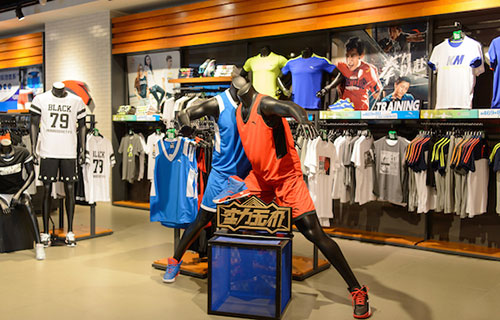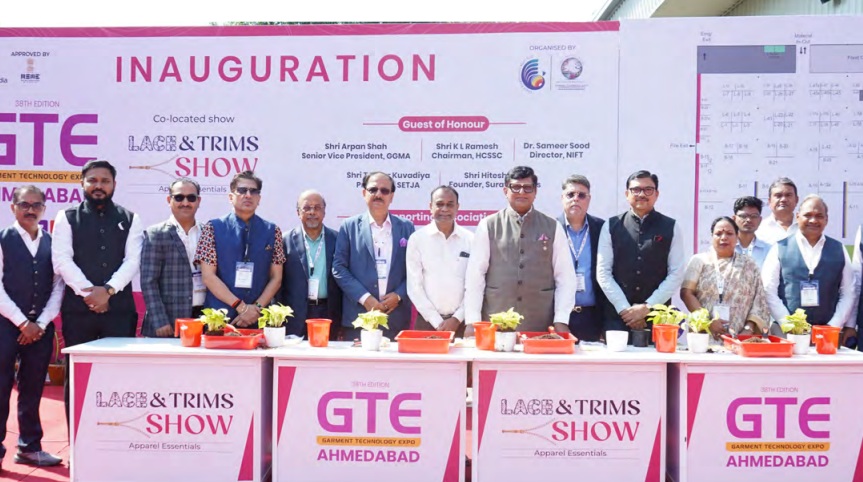FW
According to the CEO World Magazine, Louis Vuitton is one of the most expensive and sought after brands for menswear. With a net worth of $28.8 billion, the luxury brand manufactures clothing, leather goods, footwear, and stylish sunglasses as well. It is followed by Parisian beauty brand Hermes and Italian clothing brand Gucci on the second and third position respectively.
The third position in this list is occupied by the brand Prada which offers the impressive styles and colors. The fabrics used by this brand are also very comfortable and bring all-day long bliss for the wearer. Occupying the fourth position in the list British brand Burberry loves to experiment on earthy colors and interesting prints that are beautiful and extremely classy to look at.
On the sixth position is brand which was founded in the year 1946 by Christian Dior. The brand has a strong elite presence and prestigious reputation. Its range of apparel is spectacularly stylish. The last position in this list is occupied by the Spanish fast fashion brand Zara. The brand produces nearly 450 million items per year globally, with basic to layered designs. Their line of men’s trousers and tailored fit suits deserve special attention.
Bangladesh Denim Expo will be held November 5 to 6, 2019. Around 100 exhibitors from 11 countries, including host Bangladesh, will participate in this year’s denim expo. Other participating countries are China, Japan, Italy, India, Singapore, Brazil, Spain, Pakistan, Turkey, and Germany. Responsibility will be the theme at product displays, presentations, seminar sessions and panel discussions. Presentations will be on human resources, transparency in business, water conservation, purchasing practices, sustainable chemical management, waste management, circular economy in textiles and climate change. The focus of this year’s show is on practical, pragmatic actions the textile industry can adopt to improve its environmental footprint. This is the first year the expo has set supply chain standards for its exhibitors. The show has adopted corporate social responsibility, environmental and chemical use standards that will require exhibitors to provide proof of compliance with industry standards. Kingpins initiated the protocol and encouraged other trade show organizers to implement the same standards.
Bangladesh is now the world’s largest producer of denim and leads the way in terms of addressing some of the sustainability challenges related to denim production, including excessive use of water and chemicals. Each expo marks continued and gradual progress being made by the more progressive players in the industry.
"Once a booming market for jobseekers, employment in the US textile and apparel industry is currently on a rapid decline. In 1950, the industry employed an estimated 2.5 million people which were reduced to only 341, 000 by 2017. As per the Bureau of Labor Statistics, the US apparel industry has witnessed the largest decline in laborers over the last 25 years. Two major contributors to this decline included increasing automation and foreign outsourcing."
 Once a booming market for jobseekers, employment in the US textile and apparel industry is currently on a rapid decline. In 1950, the industry employed an estimated 2.5 million people which were reduced to only 341, 000 by 2017. As per the Bureau of Labor Statistics, the US apparel industry has witnessed the largest decline in laborers over the last 25 years. Two major contributors to this decline included increasing automation and foreign outsourcing.
Once a booming market for jobseekers, employment in the US textile and apparel industry is currently on a rapid decline. In 1950, the industry employed an estimated 2.5 million people which were reduced to only 341, 000 by 2017. As per the Bureau of Labor Statistics, the US apparel industry has witnessed the largest decline in laborers over the last 25 years. Two major contributors to this decline included increasing automation and foreign outsourcing.
Production processes enabled by technological advances have made the apparel industry more automated, eliminating the need of human intervention in it. Tasks, traditionally performed by people – knitting, weaving, and cutting – are now being performed by machinery and systems, replacing skilled workers.
Outsourcing impacts the domestic labor industry
Just as automation impacted the apparel industry’s workforce, it also eliminated the ‘Made in USA’ label from the market as manufacturing began to be outsourced to foreign factories that offered lower production and labor costs and free trade agreements. This made the prospect of overseas manufacturing too attractive for many US companies to resist.
the market as manufacturing began to be outsourced to foreign factories that offered lower production and labor costs and free trade agreements. This made the prospect of overseas manufacturing too attractive for many US companies to resist.
The initial outsourcing of apparel and textiles resulted in brands shifting their manufacturing bases to Asian countries such as China, Korea and Taiwan. Companies manufacturing in the US initially shifted their operations to Central America for a brief period in the 1990s. However, these operations ultimately turned to Asia with today China holding a major share of these outsourced apparel and textile manufacturing from US companies.
American clothes regain popularity
However, a recent Ford Motor Company survey indicates, the popularity of clothes manufactured in America is currently on the rise. Around 91 per cent millennials believe that clothes made by American manufacturers are of ‘equal or better quality as foreign competitors’ and 74 per cent believe purchasing products made in the US is important.
As demand for products made in America is increasing, apparel companies are proposing new ways to capitalise on this homegrown momentum. They are employing systems such as automation and AI, workforce training and micro-factories, and addressing the perceptions currently associated with a career in textile and apparel manufacturing, to deal with these issues.
Manufacturers turn to micro-factories
Another strategy these manufacturers are adopting is setting up micro-factories. These micro factories are essentially small factories that require a fraction of the square footage of traditional factories. They utilise a significant amount of automation in their processes and provide an ideal solution for the on-demand marketplace as they are nimble and capable of filling small, customised orders. Also, their small sizes enable them to be far less expensive than other factories and easier to establish their units than their conventional counterparts.
One of the most important benefits that these micro-factories offer is their ability to tackle the industry’s most significant challenge of inventory management. This is achieved through a more on-demand process that is not bound by a traditional structure. Also, by fully automating their manufacturing processes, these companies can avoid their labor cost concerns that often drive them to outsource. Automation also addresses their issue of labor shortages.
More investment in workforce management
Automation in the apparel industry can complement manual, human-performed processes and tasks. Some companies are even incorporating collaborative robots that work together with humans, or cameras that allow the operator to determine placement and other critical components of the process.
With many experienced workers retiring, and younger workers seeking employment in other high-tech less manual fields, skilled labor in textile and apparel industry is becoming a rarity. To solve this issue, the industry needs to invest more capital besides organising more textile and apparel design courses and other relevant programs to attract more youngsters to this field.
Nike’s CEO Mark Parker is stepping down, he will be replaced by board member John Donahoe, who formerly ran e-commerce company eBay. Parker, who joined the company in 1979 as a footwear designer, has been CEO since 2006.
Nike’s sales have been on the rise as the company focuses on selling more of its swoosh-branded sneakers online and on its apps. The company’s first quarter earnings last month soared past expectations.
For Generation Z, i.e. those born between 1997 and 2012, Nike is their favorite clothing brand. Nike also leads among US teens in the footwear segment. Nike’s athletic apparel offering is gaining mindshare among American consumers in four categories—innovation, fashion, style, and value. On the question of the most innovative brand, Nike is gaining ground in the mid- to upper-income male demographic. Nike is perceived as the most fashionable on-trend brand. Nike was named tops in fashion among men (42 per cent) and women (31 per cent). The positive response to Nike on both the innovation and fashion fronts is translating into high future purchase intent. Specifically, 41 per cent of men and 38 per cent of women are likely to make Nike their next athletic apparel purchase.
India’s cotton production in the current fiscal year is likely to rise by 20 per cent. The surge in production due to a bigger cultivated area and a boost to yields from above-average monsoon rains is likely to bring down prices. But India still has to import cotton. This is because certain grades such as contaminated free certified cotton and extra long staple cotton are not produced in India.
For the moment though high cotton prices in India have kept the industry burdened with low earnings. Since Indian supplies are uncompetitive due to higher prices, buyers are giving preference to Brazil and the US. The expectation is that bumper cotton production in the new season could damp prices and make exports viable. The minimum raw cotton buying price has been raised by 38 per cent in two years even as global prices were corrected to their lowest level in more than three years. Bulk buying by private bodies apparently shows the good quality of Indian cotton. Depending on the season, India produces 320 to 380 lakh bales of cotton, and despite the increasing minimum support price farmers sell only three per cent to the Cotton Corporation of India as they get a much better price for their produce by private bodies.
The High Court has imposed a six-month ban on Nirapon, an alliance of 23 foreign RMG brands that oversee building inspection, remediation, and monitoring of listed apparel factories in Bangladesh. The High Court also issued a rule asking Nirapon to explain within two weeks why it should not be ordered to join the RMG Sustainability Council, a tripartite compliance and safety monitoring body of the apparel sector that will formally come into being on November 25.
Nirapon was established as a common platform, by global RMG brands, for whom Bangladesh is an important sourcing destination, to sustain and build on the safety achievements of the past six years. More than 600 factories are functioning under Nirapon, which requires that the National Action Plan be met on a continued basis, as well as synchronised standards for physical, structural, fire, and electrical safety.
After the collapse of Rana Plaza, which killed 1,135 people in 2013, Alliance for Bangladesh Worker Safety, a platform of North American apparel brands and retailers, started to work with Bangladeshi apparel industry to improve safety standards within a five year time frame.
Bangladesh’s cotton imports will continue to grow in the near future. One reason is that retailers and brands are coming back to Bangladesh with a lot of work orders as China has become very expensive because of the trade war. Another important reason is that much of yarn and fabrics in Bangladesh are made from cotton. One very big advantage for Bangladesh is that consumers, especially in the western world, are coming back to natural fiber from manmade artificial fiber with the view to protecting the environment and for comfort. While cotton fibers are biodegradable, polyester and other manmade fibers do not mix with the soil and damage the water and soil quality.
Between 2015 and 2017 Bangladesh imported 2,26,000 bales of cotton each year, but the quantity tripled last year. Currently, Bangladesh imports 11 per cent of its annual total requirement of cotton from the US, which was just four per cent even three years ago. Over time, America’s export of cotton to Bangladesh will grow because of good quality, competitive prices and timely delivery. Cotton USA has ramped up its marketing efforts in Bangladesh for grabbing a bigger market share. It has opened its office in Dhaka and hired some technical persons for educating about cotton use and trade.
Elleti Group featured its “Out of the blue impression” collection during Kingpins show at Amsterdam on 23th -24th October. The collection is inspired by Cubism, a movement that transforms reality instead of representing it. It is dismembered and recomposed by laser geometries until they merge and overlap with their very own pattern.
The use of multi-colored metal coating, coiled hand-made lines, the balance of seamless and defined figures in this collection are a tribute to the Art Nouveau’s artist Klimt. These garments are reworked using natural pigments through the Tie&Dye technique, their dynamism, color and expression taking over the subject represented. The abstractism in them is turned into communication tools through their unexpected combinations of shapes, symbols, and colors. Lastly, the collection represents through its innovative production techniques of plastic foiling and color spray.
Elleti group produces 14 million garments annually. The company leads the way in reconstructing the stylistic development that has been made possible by technological advancements.
This year's Aachen-Dresden Denkendorf textile conference will share innovative concepts on the textile Internet, considering which the transmitter sends touch stimuli to the recipient. The process is driven with fast data transmission via a new 5G mobile radio standard that makes this possible. The conference will explore topics such as scanning bodies of patients, through caregivers via sensitive textile pads and transfers the properties of the body surface with the help of the textile via 5G to the doctor for evaluation.
To be held on November 28-29, 2019, the conference will bring together representatives from the textile industry, science, and user sectors. It discusses topics like 5G and the tactile Internet, for which many new textile solutions will be needed in the future.
With over 90 lectures to focus on new production technologies and products, the conference will give details on all the ladder of topics.
The conference will witness the German textile and clothing industry being the second largest consumer goods industry with around 1,400 companies and around 135,000 employees in Germany. Technical textiles are already highly innovative in many application areas, and German textile companies are important suppliers to sectors such as the automotive, aerospace, and medical and geotechnical sectors. Germany is the world market leader in the field of technical textiles.
"As the ongoing trade war is pushing biggest labels out of China, a quarter of the country’s production capacity is lying idle. This is also forcing Chinese brands to offer discounts of 10 per cent to local companies. Particularly under pressure are international sportswear brands that are shifting their sourcing overseas resulting in most of the production capacity in the country lying unoccupied."
 As the ongoing trade war is pushing biggest labels out of China, a quarter of the country’s production capacity is lying idle. This is also forcing Chinese brands to offer discounts of 10 per cent to local companies. Particularly under pressure are international sportswear brands that are shifting their sourcing overseas resulting in most of the production capacity in the country lying unoccupied.
As the ongoing trade war is pushing biggest labels out of China, a quarter of the country’s production capacity is lying idle. This is also forcing Chinese brands to offer discounts of 10 per cent to local companies. Particularly under pressure are international sportswear brands that are shifting their sourcing overseas resulting in most of the production capacity in the country lying unoccupied.
This idle capacity in a country comes as big blow to Chinese manufacturers who are already grappling with an economy that is expanding at its slowest pace in the last three decades. The moving out of global firms like Microsoft Corp and Giant Manufacturing Co from China is forcing American companies to seek new alternatives including making their products in-house.
Help for these companies are coming from the world’s largest supplier of consumer goods, Li & Fung, which is actively helping clients to move sourcing away from China to other regions. It helped one American retailer to reduce its reliance on China from to 20 per cent from 70 per cent within two years. The US-China trade War is also pinching U.S. companies exporting to China, the world's largest consumer market. They are being hit by retaliatory tariffs China has levied on American products.
actively helping clients to move sourcing away from China to other regions. It helped one American retailer to reduce its reliance on China from to 20 per cent from 70 per cent within two years. The US-China trade War is also pinching U.S. companies exporting to China, the world's largest consumer market. They are being hit by retaliatory tariffs China has levied on American products.
Leveraging domestic market potential
To counter demand from foreign markets, China can leverage its $4.7 billion domestic sportswear. Hence the market shifts to products that can be both made and sold in China. Chinese sportswear brands like X Step are currently in a sound financial condition. The brand recently acquired a U.S.-based company that added tennis brand K-Swiss, Palladium boots, and Supra shoes to its portfolio.
It now plans to take advantage of manufacturer’s lowered prices by expanding production of international brands in China. Despite all this, China’s $40 billion-a-year market for sports apparel is less than half of the market in the US. However, this may change with time as the gap between domestic brands and international brands will slowly be closed. Younger Chinese consumers, especially those born after 1990, will have a greater affinity to local brands.












